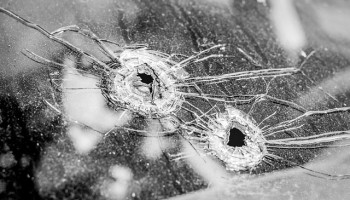Gary Alejano, a representative in the lower house, asserted that among other things Rodrigo Duterte should be impeached for bribery, betrayal of public trust and violation of the Constitution.
"It is high time that President Duterte is punished for his sins against the country," Alejano said Thursday.
"We are of the firm belief that he is unfit to hold the highest office of the land and that impeachment is the legal and constitutional remedy to this situation," he said.
Duterte is accused of implementing a state policy that encouraged authorities to kill in the government’s campaign against illegal drug use. Several human rights groups have said he’s committed crimes against humanity.
Around 8,000 drug users and dealers, many of them poor, have been killed by police as part of the crackdown on illegal drugs, according to the complaint.
The document alleges that another 1,400 people were killed by "death squads" during Duterte’s time as mayor of Davao. Two self professed hit men have confessed to being a part of the death squad.
The complaint also claims the president fabricated a payroll with thousands of fictitious employees to collect their salaries and that the Duterte family is hiding a secret, unexplained fortune of 2.2 billion pesos (US$ 43.86 million).
Duterte himself has boasted of killing criminals, once claiming he threw someone out of a helicopter.
Presidential spokesman Ernesto Abella has said the complaint was part of a plot to undermine the current administration that seemed "rather dramatic."
Duterte’s popularity remains high which will make the process difficult. When asked about the allegations, the Speaker of the House and close ally of Mr. Duterte Pantaleon Alvarez said "we are entitled to our own stupidity."
The impeachment process begins in the House of Representatives and only a third of the 292 members need to approve the matter for it to pass. A two-thirds majority in the 24 member Senate is needed to remove a president from office.
The last impeachment of a Philippine leader was in 2000, when then-President Joseph Estrada was accused of corruption and violating the Constitution.
His impeachment trial stalled in January 2001, triggering mass protests that forced Estrada out of office after serving just two and half years of his six-year term. Estrada was eventually convicted of corruption charges and later pardoned.






